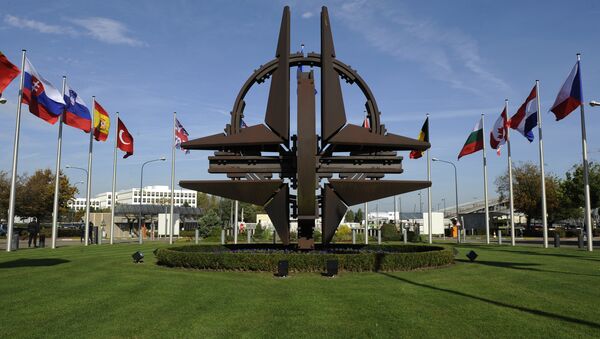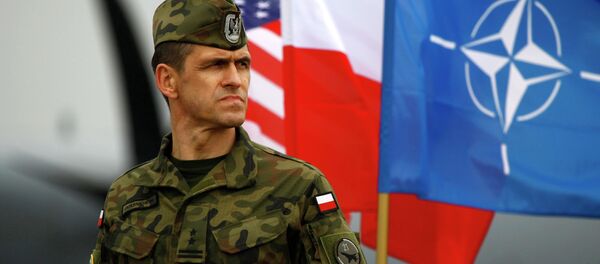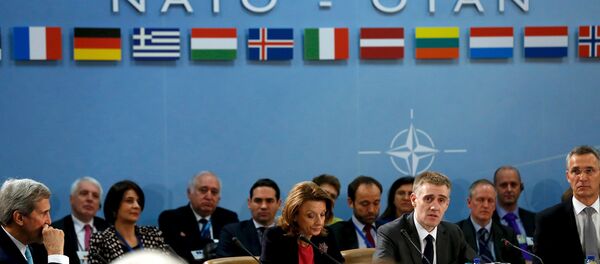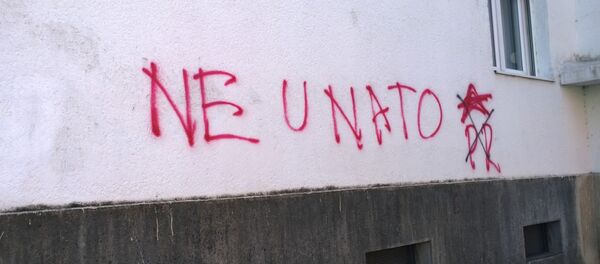Grushko said that NATO has chosen the strategy of creating security structures in partnership formats with Iraq, Jordan, and others, but is not directly involved in anti-IS operations because most of the alliance’s members are in one way or another involved in the US-led coalition already.
“The abbreviations of NATO aren’t very popular in the Middle East and many understand that it’s better not to go in there with those ‘four letters,’” Grushko said during a video linkup between Brussels and Moscow.
A US-led international coalition has been conducting airstrikes against Daesh, prohibited in Russia and many other countries, in Iraq and Syria since 2014 without the approval of the UN Security Council or the Syrian government.
Russia started its own air campaign against Daesh in Syria on September 30 at the request of President Bashar Assad which was launched almost simultaneously with the creation of the Baghdad Information Center, established by Iran, Iraq, Syria and Russia to coordinate joint military action against IS.
NATO's recent foreign ministers meeting shows that the alliance is beginning to see real challenges and threats, Grushko said.
"The most important thing is that NATO, finally, has started turning toward real challenges and threats," first and foremost from the South, Grushko said at a video conference held by Rossiya Segodnya news agency.
NATO expansion is blatantly ideological and has nothing to do with security, Grushko said.
“I think the role that’s being played here is the fact that NATO has for the first time accepted a government [Montenegro], which was part of a country that was under [NATO] bombardment. This is some sort of an attempt to show that back in 1999 we were right. This is yet more evidence that the project of expanding the alliance is an ideological project and has nothing to do with security,” he said.
On December 2, the foreign ministers of the NATO member states invited Montenegro to join the alliance.
"It does not correspond to the real needs of European security," the Russian envoy said.
NATO’s invitation is the latest expansion of the US-led military bloc since it accepted Albania and Croatia as members in 2009. Bosnia and Herzegovina, Georgia, and Macedonia have all made strides toward accession, according to NATO Secretary General Jens Stoltenberg.
Last Wednesday, the Russian Foreign Ministry said that Moscow considered NATO's invitation to Montenegro to be a blatantly confrontational move that directly affected Russia's interests and could lead to the destabilization of the security situation in Europe.




